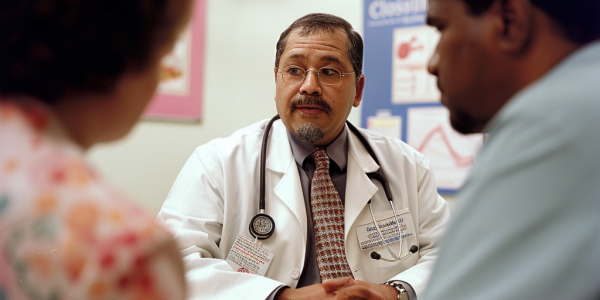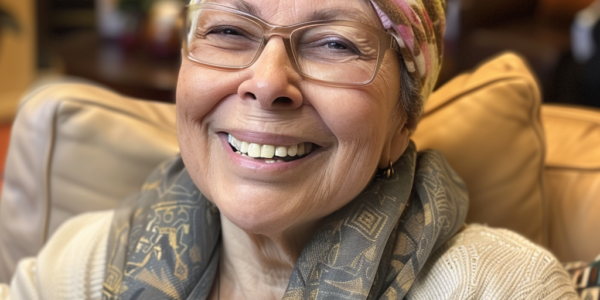UF Health Enhances Cancer Treatment Amid Hurricane Challenges
UF Health is addressing the urgent supply of sterile fluids post-Hurricane Helene while advancing cancer treatments, particularly for Hodgkin lymphoma. Clinical pharmacy specialist Emilie Lynch, a three-time survivor, highlights the importance of innovative research and clinical trials aimed at minimizing treatment side effects. UF Health’s commitment to patient care and safety underscores its leadership in oncology and dedication to improving outcomes for future generations.
Dave Coulier Reveals Stage 3 Non-Hodgkin Lymphoma Diagnosis and Advocates for Health Vigilance
Actor Dave Coulier, known for his role as Uncle Joey on ‘Full House,’ reveals his Stage 3 non-Hodgkin lymphoma diagnosis in a heartfelt TODAY show interview. His story emphasizes the importance of early detection and health vigilance, encouraging others to seek medical advice when experiencing unusual symptoms. Coulier’s resilience and positive outlook inspire fans as he navigates this challenging journey, highlighting the significance of cancer awareness and proactive health management.
Raising Awareness: The Importance of Understanding Blood Cancers
Blood cancer affects thousands in the U.S. with a diagnosis every three minutes. Dr. Claire Tiger emphasizes the importance of education and awareness for early detection of leukemia, lymphoma, and myeloma. Recognizing symptoms and understanding treatment advancements can significantly improve patient outcomes. Stay informed to support those on their recovery journey.
Rising Blood Cancer Rates Highlight Need for Awareness and Early Detection
Blood cancers, including leukemia, lymphoma, and myeloma, are on the rise in the U.S., with a diagnosis every three minutes. Awareness and early detection are crucial for improving patient outcomes. Learn about the types of blood cancers, their symptoms, and recent advancements in treatment to empower yourself and others in the fight against these diseases.
Study Finds Potential Link Between Tattoos and Increased Risk of Cancer
A recent study published in The Lancet reveals a 21% higher risk of malignant lymphoma in individuals with tattoos. The study links tattoo ink containing carcinogenic substances to potential health risks, highlighting the importance of monitoring ingredients in tattoo ink. Further research is needed to establish causality, but the findings raise concerns about the long-term health implications of getting tattoos.
Study Suggests Potential Link Between Tattoos and Blood Cancer Risk
Recent research suggests a potential link between tattoos and blood cancer, specifically lymphoma, with a 21% increased risk among individuals with tattoos. The study from Lund University in Sweden highlights the presence of carcinogens in tattoo ink, which may trigger inflammation linked to cancer development. Contrary to previous studies, the latest research found a correlation between tattoos and lymphoma, emphasizing the importance of informed decision-making regarding body art and health considerations.
New CAR T-Cell Therapy Offers Hope to Lymphoma Patients
Learn about the promising new CAR T-Cell therapy offering hope to lymphoma patients who have not responded to traditional treatments. Discover how this innovative therapy is providing a potential cure for individuals like John Bell, who faced an aggressive form of lymphatic system cancer and found new hope through this groundbreaking treatment.
Study Finds 21% Increased Risk of Cancer with Tattoos
Recent study suggests a 21% increased risk of developing cancer for individuals with tattoos. Researchers are not discouraging tattoos but focusing on procedure safety. Popularity of tattoos on the rise, with societal acceptance growing. Lund University study explores potential link between tattoos and lymphoma, revealing higher risk among individuals with tattoos. Further research needed to confirm findings.
New Drug Trial Offers Hope for Blood Cancer Patients
Adele Adams, a 59-year-old blood cancer patient, shares her positive experience with a new drug trial at The Christie Hospital in Manchester. The drug, NX-5948, shows potential in treating difficult-to-treat B-cell lymphomas, offering hope for patients who have exhausted traditional chemotherapy options. Dr. Kim Linton cautiously expresses optimism about the trial, highlighting the potential breakthrough in the fight against lymphoma.
Doctor outlines red flag signs of Hodgkin’s lymphoma
A doctor has outlined the red flag signs of a type of blood cancer, known as Hodgkin’s lymphoma, that affects the white blood cells which are called lymphocytes. Also called the cancer of the lymphatic system, Hodgkin’s lymphoma targets a…










